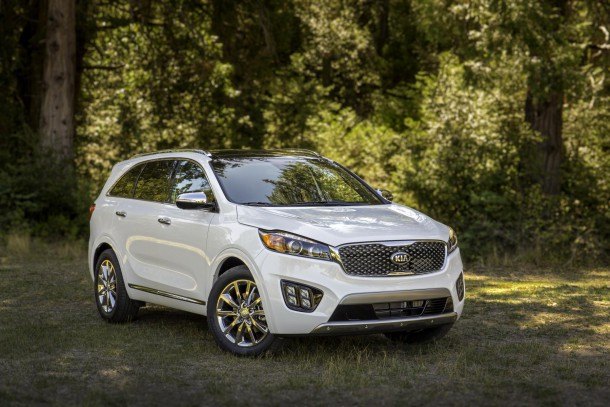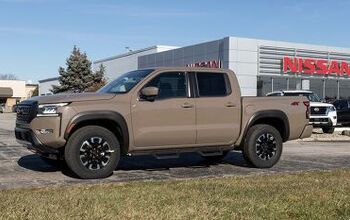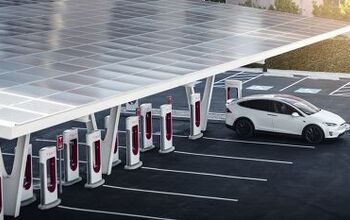Koreans Best Japan In 2015 JD Power Initial Quality Study
Once one of the bests among the rests, Japanese automakers fell below average in the 2015 J.D. Power Initial Quality Study as the Koreans rise in quality.
While Porsche took the gold in initial quality for the third consecutive year, Kia took the silver in this year’s study, Detroit Free Press reports, marking the first time the brand has led all non-premium makes in the study; Hyundai held onto fourth behind Jaguar in 2015.
Meanwhile, Lexus tied with parent company Toyota for ninth with 104 problems per 100 units, with Infiniti finishing in fifth as the highest-ranked Japanese brand; it had placed 24th in 2014, five spots below the industry average of 116 problems per 100 units. Chevrolet took seventh as the highest-ranked U.S. mainstream brand, while Lincoln took eighth as the highest-ranked U.S. luxury brand.
According to J.D. Power U.S. automotive quality chief Renee Stephens, the shift in quality among the Koreans “was a historic shift” in the 29 years the study has been conducted:
For so long, Japanese brands have been viewed by many as the gold standard in vehicle quality. We’re seeing other brands, most notably Korean makes, really accelerating the rate of improvement. Leading companies are not only stepping up the pace of improvements on existing models, but are also working up front to launch vehicles with higher quality and more intuitive designs.
She adds the Koreans are where they are now due to their holistic approach in improving quality, from the assembly line, to design and the supply chain.
Technology remains the sticking point regarding initial quality, with the top problems being pairing smartphones to the vehicle’s infotainment system, and voice command. There, Stephens says Hyundai and Kia, as well as Chevrolet, benefitted from strong systems, while Ford has worked out the bugs, and Toyota’s system needed improvement:
Smartphones have set high consumer expectations of how well technology should work, and automakers are struggling to match that success in their new vehicles. However, we are seeing some (automakers) make important improvements along the way. What’s clear is that they can’t afford to wait for the next generation of models to launch before making important updates to these systems.
This year’s J.D. Initial Quality Study surveyed over 84,000 who bought or leased a new 2015 model, and covers 215 models and 139 plants.
Photo credit: Kia
Seattle-based writer, blogger, and photographer for many a publication. Born in Louisville. Raised in Kansas. Where I lay my head is home.
More by Cameron Aubernon
Latest Car Reviews
Read moreLatest Product Reviews
Read moreRecent Comments
- W Conrad I'm not afraid of them, but they aren't needed for everyone or everywhere. Long haul and highway driving sure, but in the city, nope.
- Jalop1991 In a manner similar to PHEV being the correct answer, I declare RPVs to be the correct answer here.We're doing it with certain aircraft; why not with cars on the ground, using hardware and tools like Telsa's "FSD" or GM's "SuperCruise" as the base?Take the local Uber driver out of the car, and put him in a professional centralized environment from where he drives me around. The system and the individual car can have awareness as well as gates, but he's responsible for the driving.Put the tech into my car, and let me buy it as needed. I need someone else to drive me home; hit the button and voila, I've hired a driver for the moment. I don't want to drive 11 hours to my vacation spot; hire the remote pilot for that. When I get there, I have my car and he's still at his normal location, piloting cars for other people.The system would allow for driver rest period, like what's required for truckers, so I might end up with multiple people driving me to the coast. I don't care. And they don't have to be physically with me, therefore they can be way cheaper.Charge taxi-type per-mile rates. For long drives, offer per-trip rates. Offer subscriptions, including miles/hours. Whatever.(And for grins, dress the remote pilots all as Johnnie.)Start this out with big rigs. Take the trucker away from the long haul driving, and let him be there for emergencies and the short haul parts of the trip.And in a manner similar to PHEVs being discredited, I fully expect to be razzed for this brilliant idea (not unlike how Alan Kay wasn't recognized until many many years later for his Dynabook vision).
- B-BodyBuick84 Not afraid of AV's as I highly doubt they will ever be %100 viable for our roads. Stop-and-go downtown city or rush hour highway traffic? I can see that, but otherwise there's simply too many variables. Bad weather conditions, faded road lines or markings, reflective surfaces with glare, etc. There's also the issue of cultural norms. About a decade ago there was actually an online test called 'The Morality Machine' one could do online where you were in control of an AV and choose what action to take when a crash was inevitable. I think something like 2.5 million people across the world participated? For example, do you hit and most likely kill the elderly couple strolling across the crosswalk or crash the vehicle into a cement barrier and almost certainly cause the death of the vehicle occupants? What if it's a parent and child? In N. America 98% of people choose to hit the elderly couple and save themselves while in Asia, the exact opposite happened where 98% choose to hit the parent and child. Why? Cultural differences. Asia puts a lot of emphasis on respecting their elderly while N. America has a culture of 'save/ protect the children'. Are these AV's going to respect that culture? Is a VW Jetta or Buick Envision AV going to have different programming depending on whether it's sold in Canada or Taiwan? how's that going to effect legislation and legal battles when a crash inevitibly does happen? These are the true barriers to mass AV adoption, and in the 10 years since that test came out, there has been zero answers or progress on this matter. So no, I'm not afraid of AV's simply because with the exception of a few specific situations, most avenues are going to prove to be a dead-end for automakers.
- Mike Bradley Autonomous cars were developed in Silicon Valley. For new products there, the standard business plan is to put a barely-functioning product on the market right away and wait for the early-adopter customers to find the flaws. That's exactly what's happened. Detroit's plan is pretty much the opposite, but Detroit isn't developing this product. That's why dealers, for instance, haven't been trained in the cars.
- Dartman https://apnews.com/article/artificial-intelligence-fighter-jets-air-force-6a1100c96a73ca9b7f41cbd6a2753fdaAutonomous/Ai is here now. The question is implementation and acceptance.


































Comments
Join the conversation
What's weird is that Porsche is on top of this study and then Consumer Reports also similarly says that Porsche reliability is very good. But then What Car in the UK is claiming they're super unreliable: http://www.cnbc.com/id/102592730 The data from consumer reports and JD power actually match up decently so I dunno what's going on with this UK data. Edit: It seems that the UK rankings used some sort of cost to repair system that ranked companies a lot lower if repairs were expensive, not just by frequency. That explains a lot then lol.
I get email requests from JDP asking me to complete surveys on quality, reliability, etc. Some of their questions are simply stupid so I delete them anyway. I think it's obvious Koreans are trying but I think their lack of automotive heritage will always put them years behind Japanese engineering.